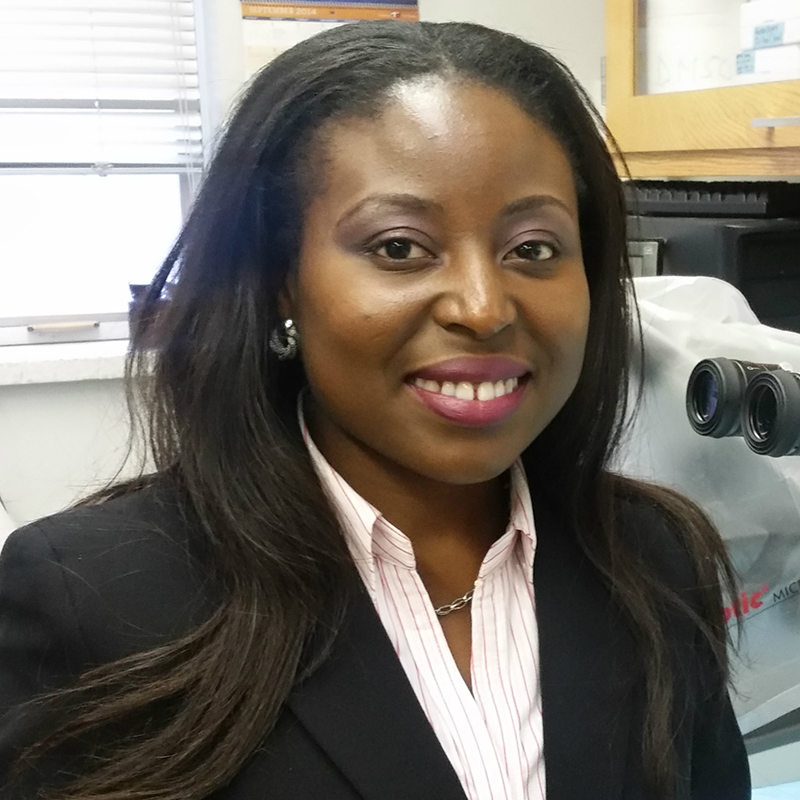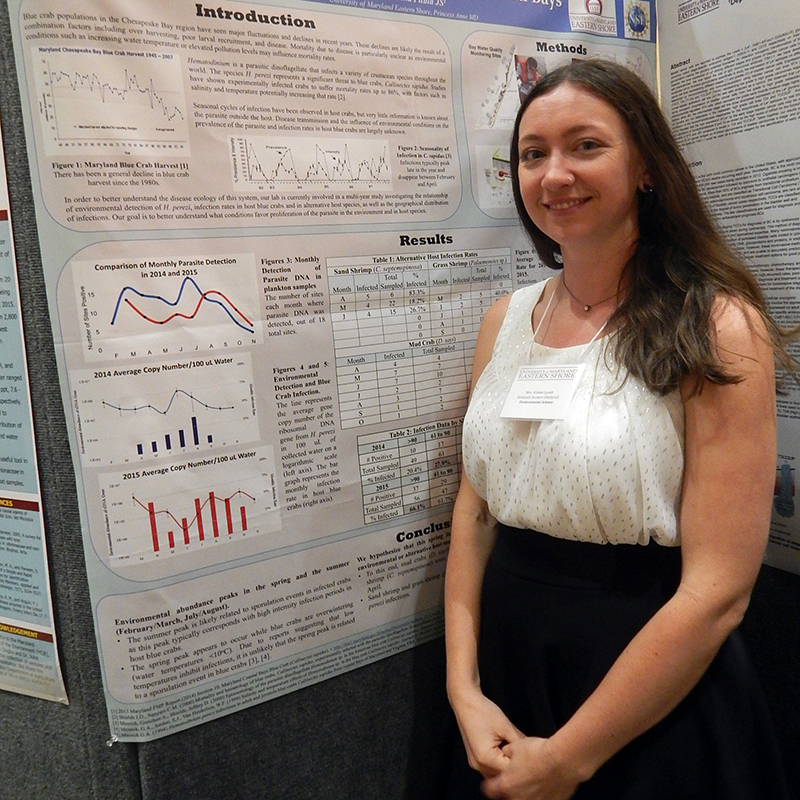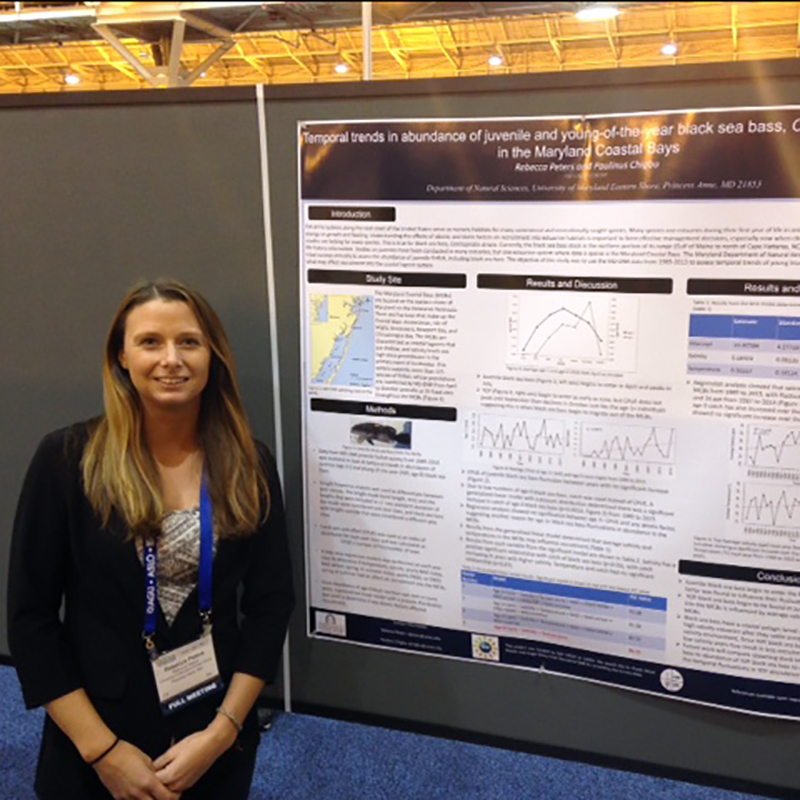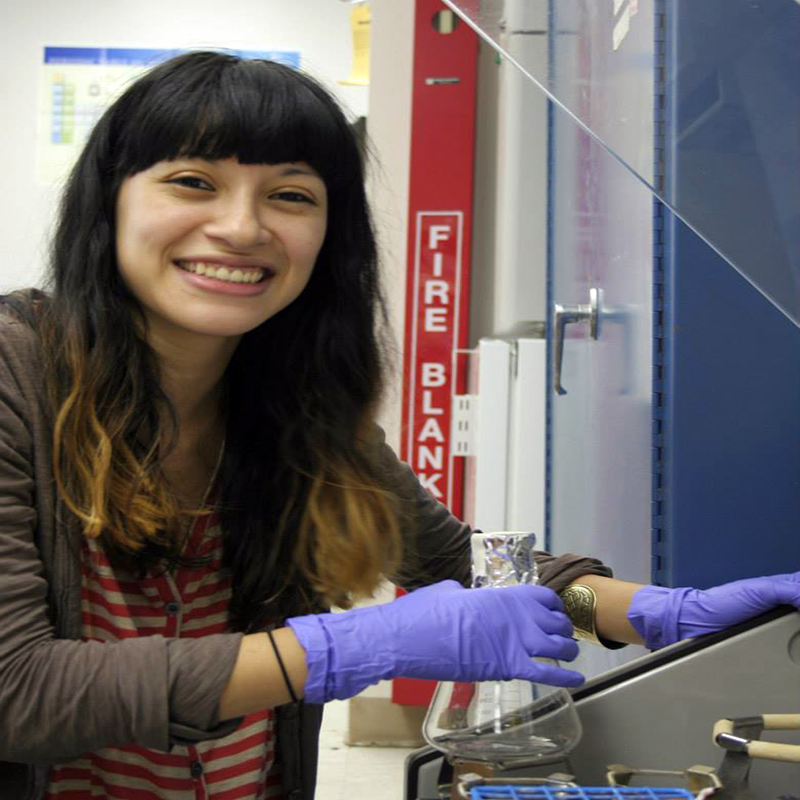About
CREST-CISCEP provides support for eight full time graduate students (M.S./Ph.D) at UMES. Students’ graduate research focuses on one of the three subprojects that deal with the influence of climate variability on (1) food web dynamics, (2) exchange of materials between MCBs and coastal ocean and (3) microbial dynamics in the MCBs.
Most graduate students entering the program do so under the Marine, Estuarine and Environmental Science (MEES) program at UMES. The MEES program has several Areas of Specialization that pertain directly to the goals of CREST-CISCEP. More information on the program and its prerequisites are available on the program’s website, http://mees.umd.edu/.
Application Requirements for CREST-CISCEP
Students must apply to the MEES program at UMES, following the application process and deadlines for both the program and the University.
Students should first contact CREST-CISCEP Program Coordinator Dr. Ligia DaSilva to determine the availability of funding. Students should then contact the leader of the sub-project that they are interested in to determine if space is available in their laboratory.
Students must have a minimum cumulative GPA of 3.0 upon entry and maintain it throughout the program.
Expectations
Each student’s thesis or dissertation research will be based on one of the three research sub-projects listed below.
Students are expected to present their research results at the UMES Graduate School Annual Regional Research Symposium and professional meetings such as the Association for the Sciences of Limnology and Oceanography (ASLO), the Coastal and Estuarine Research Federation (CERF), and the American Fisheries Society (AFS).
Students will be encouraged to apply for additional research funding and fellowships and to gain professional experience by teaching a lab course or mentoring an undergraduate and/or high school students. All students must submit at least one manuscript for publication in a peer-reviewed journal before completing their degree program.
During their first semester, graduate students supported by the Center will be encouraged to participate in a workshop to provide instruction on how to complete fellowship applications.
Support
- Stipend of $21,000/year
- Tuition waiver (up to 10 credits per semester)
- Eligibility for health benefits
- Travel support to present research at regional/national meetings
For more information, please contact Paulinus Chigbu at 410-621-3034 or pchigbu@umes.edu.
Research Projects
The CREST Center’s research focuses on three important components of the aquatic ecosystem, all of which have economic and/or environmental implications for people living in coastal areas.
The three collaborative sub-projects deal with the interaction between climate variability and (1) food web dynamics, (2) exchange of materials between MCBs and coastal ocean, (3) microbial dynamics in the MCBs.
Research Sub-projects and Leaders
Subproject 1: Climate variability and food web dynamics in the MCBs
Project Leader: Ali Ishaque; abishaque@umes.edu
Subproject 2: Climate variability and exchange of materials between MCBs and Coastal Ocean
Project Leader: Dr. Margaret Sexton; msexton@umes.edu
Subproject 3: Climate variability and microbial dynamics in the MCBs
Project Leader: Salina Parveen; sparveen@umes.edu






